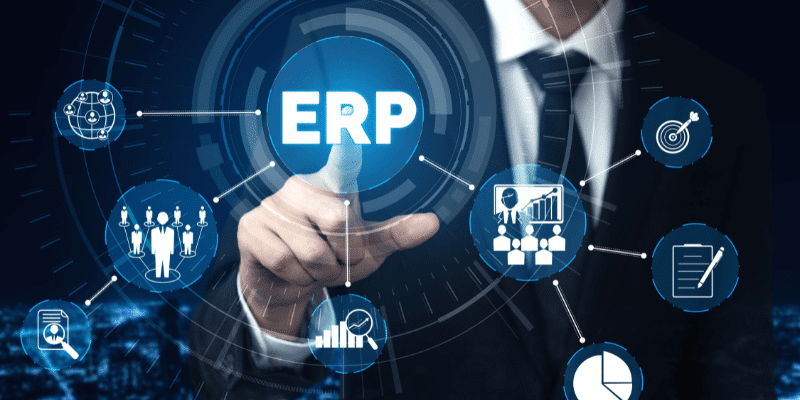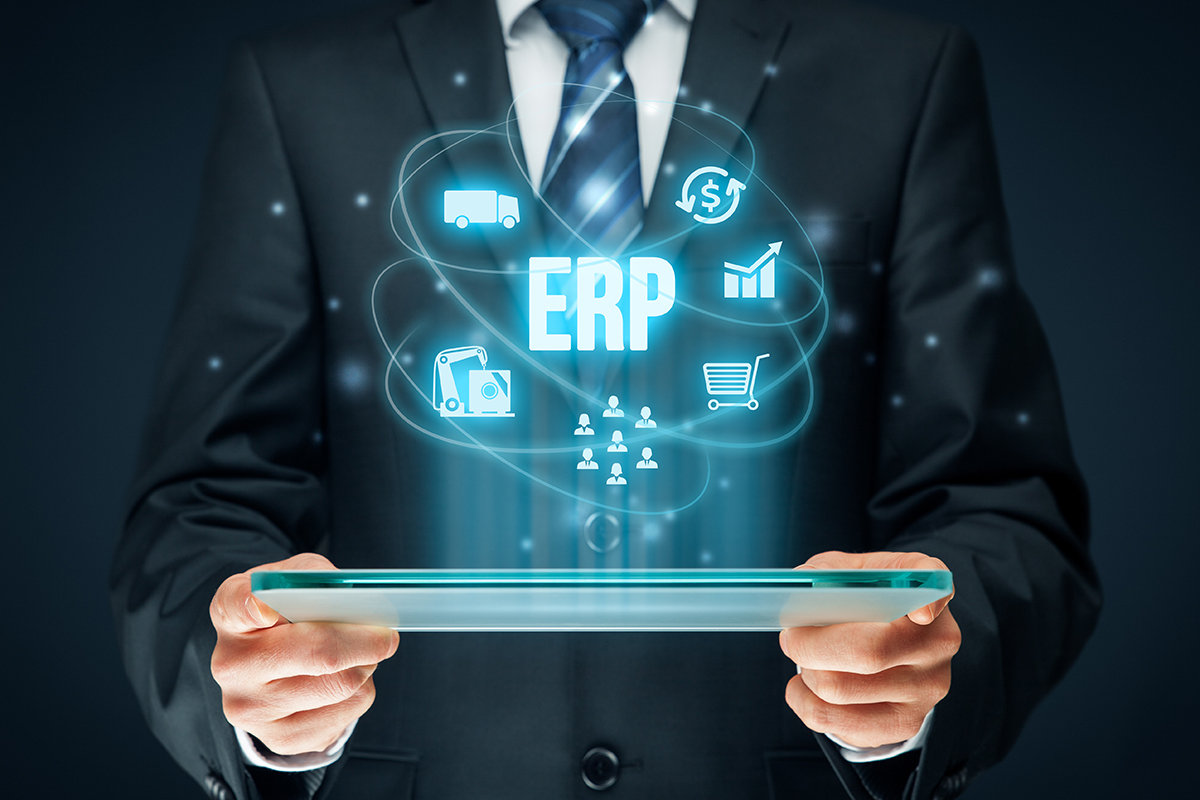ERP generally refers to a set of software tools that help manage a range of everyday tasks performed by companies financing, manufacturing, project management, human resources and marketing, ERP systems are usually deployed in order to integrate previously disparate business functions into a more coherent and streamlined system, and to learn more about this system and its benefits, read on.

Definition of ERP
ERP is as we indicated the beginning of a management program that integrates many functions making it possible to manage all the company's services, such as: inventory management, production management, customer relationship management, accounting, quality, etc., as ERP aggregates all the company's operating flows as well as all the data on a single basis.
How ERP works?
ERP systems consist of a range of applications or integrated units, where we find an accounting unit or so-called ERP accounting software, one for inventory, also an ERP human resources system, etc., and there are significant differences between ERP systems designed for manufacturing, for example, and those for retail.
Thereafter, everyone in the company accesses the units and data according to his or her constituted rights, then users can then enter their data into the erp corporate management software, and since the units are connected to each other, after registration of acceptance by the customer, the invoice can be issued by retrieving the quotation information, thereby reducing the risk of errors and allowing significant saving in time.
ERP Objective
ERP's goal is to help organizations become more flexible and efficient, and make data-driven decisions that lead to better business outcomes, by bringing all this information together in a single central location.
ERP systems provide business owners with greater visibility and real-time access to data, anytime, anywhere, and companies often ask for support from a digital agency to help them choose the best ERP system.
ERP Benefits
We touched on ERP goals, which are one of the most important ERP advantages, and here are other reasons, you can see as enough reason to provide yourself with the most prominent ERP accounting system:
1. Process Improvement
ERP's advantage lies in planning its various resources ensuring better communication and removing repeated processes, reducing the risk of errors affecting production and profitability. ERP clients also benefit from interdivisional coordination, centralization of customer information or even better control of inventory enabled by the integrated management software package.
2 . Inventory Management
As indicated, ERP allows you to get a real-time overview of the arrival of new products and identifying links in the supply chain that suffer from failures, or that need improvement, staff will also be able to anticipate their tasks thanks to the best ERP system, Users also have real-time access to inventories, sales and deliveries, as they can quickly and easily replenish inventory to meet new demand.
3. Reduce your costs
ERP is a solution that is perfectly adapted to your business strategy in addition to your budget, the ERP system allows you to it is important to know that the cost of the ERP cloud system is much lower about 20 to 25%, compared to the traditional ERP, where remote hosting mode allows you to make significant savings in installing different servers and maintenance.
4. Frequent Automatic Updates
ERP has frequent updates by suppliers, where you can take advantage of a total of two major updates per year, and some small improvements may sometimes be made outside the update months to increase your activity growth, freeing you from all constraints and having more time to focus on the related and strategic tasks of your business.
5. Validity of financial information
ERP fiscal integrates all the different financial functions necessary, by keeping data settings, as the unit automatically passes every new information entered into the relevant accounting functions, and in this way, you can automatically and transparently transfer information from one service to another, contributing to the efficiency of your financial and accounting services.
6. Improved information exchange
ERP is flexible. It integrates seamlessly with your information systems, regardless of the different ERP systems used by your affiliates. The funding module adapts to different scenarios and collects in one database all the financial information needed for the smooth operation of your business.
7. Enhancing synergies between frameworks
ERP, which includes all of the company's data, improves cooperation between its services or departments, ERP reduces delays in communication between all stakeholders in the organization and improves their efficiency, especially if the company develops its activity through a network of institutions, subsidiaries and franchises in several countries.
8. Planning and reporting
Operational access to all business information makes it easy to analyze to develop an intelligent development planning process. Management teams and sales representatives use aggregated data and develop a new strategy or improvement plan that exists more easily. Here the best ERP software allows rapid reporting of customer behavior and expectations... With respect to after-sales service... etc.
9. Meet customer expectations
ERP provides a central communication tool for all departments It gives employees a comprehensive view of all customer communications, from the first contract to the latest For example, suppose that a customer contacted the company to solve a technical problem or purchase additional services, The employee dealing with this client can review the customer's previous contacts with the company quickly Thus, he will be able to see his transaction record, preferences, history of services, etc.
Conclusion:
In general, companies want to become more effective and efficient, this allows entrepreneurs to increase their productivity and profits, and here comes the well-adapted ERP role in improving productivity and increasing corporate profits, through several ways that we mentioned above.
other topics:
reference
1. <<5 Essential Benefits of Choosing an Efficient ERP System>>, readwrite
2. <<Reasons to Use ERP Systems in Businesses>>, enterprisetalk

Add New Comment